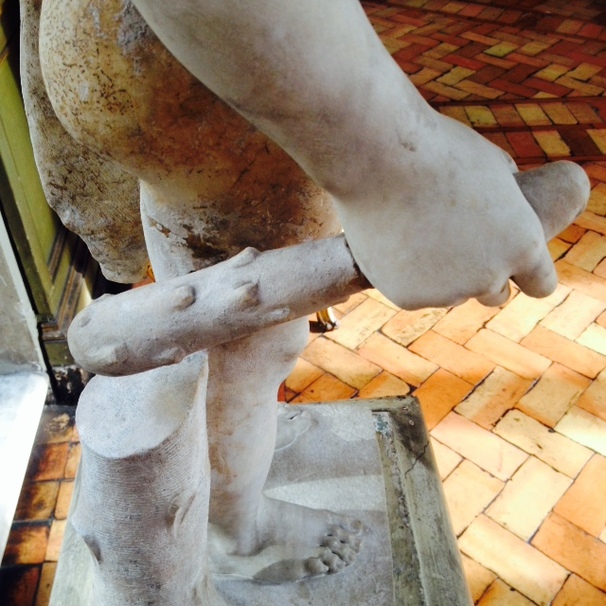-
In the ordinary theological universe, your duty is imposed onto you by God or society or another higher authority, and your responsibility is to do it. But in a radically atheist universe, you are not only responsible for doing your duty, you are also responsible for deciding what is your duty. There is always in our subjectivity, in the way we experience ourselves, a minimum of hysteria. Hysteria is what? Hysteria is the way we question our social, symbolic identity.
What is hysteria at its most elementary? It's a question addressed at the authority which defines my identity. It's "Why am I what you are telling me that I am?" In psychoanalytic theory, hysteria is much more subversive than perversion. A pervert has no uncertainties while, again, the hysterical position is that of a doubt, which is an extremely productive position. All new inventions come from hysterical questioning. And the unique character of Christianity is that it transposes this hysterical questioning onto God himself as a subject....
How did we come to that unique point, which I think makes Christianity an exception? It all began with the Book of Job....
No meaning in catastrophes. Here we have the first step in the direction of delegitimizing suffering. The contrast between Judaism and Christianity is the contrast between anxiety and love. The idea is that the Jewish God is the God of the abyss of the Other's desire. Terrible things happen. God is in charge, but we do not know what the big Other, God, wants from us. What is the divine desire? To designate this traumatic experience, Lacan used the Italian phrase, Che vuoi? "What do you want?" This terrifying question, "But what do you want from me?"
The idea is that Judaism persists in this anxiety, like God remains this enigmatic, terrifying Other. And then Christianity resolves the tension through love. By sacrificing his son, God demonstrates that he loves us. So it's a kind of an imaginary, sentimental, even, resolution of a situation of radical anxiety.
If this were to be the case, then Christianity would have been a kind of ideological reversal or pacification of the deep, much more shattering Jewish insight. But I think one can read the Christian gesture in a much more radical way. This is what the sequence of crucifixion in Scorsese's film shows us. What dies on the cross is precisely this guarantee of the big Other. The message of Christianity is here radically atheist. It's the death of Christ is not any kind of redemption or commercial affair in the sense of Christ suffers to pay for our sins. Pay to whom? For what? and so on. It's simply the disintegration of the God which guarantees the meaning of our lives. And that's the meaning of the famous phrase, Eli, Eli, Lama Sabachthani. "Father, why have you forsaken me?"
Just before Christ's death, we get what in psychoanalytic terms we call subjective destitution, stepping out totally of the domain of symbolic identification, canceling or suspending the entire field of symbolic authority,
the entire field of the big Other. Of course, we cannot know what God wants from us, because there is no God. This is the Jesus Christ who says, among other things, "I bring sword, not peace." "If you don't hate your father, your mother, you are not my follower." Of course this doesn't mean that you should actively hate or kill your parents. I think that family relations stand here for hierarchic social relations. The message of Christ is, "I'm dying, but my death itself is good news. It means you are alone, left to your freedom.
Be in the Holy Ghost, Holy Spirit, which is just the community of believers."It's wrong to think that the Second Coming will be that Christ as a figure will return somehow. Christ is already here when believers form an emancipatory collective. This is why I claim that the only way really to be an atheist is to go through Christianity. Christianity is much more atheist than the usual atheism, which can claim there is no God and so on. But nonetheless it retains a certain trust into the big Other. This big Other can be called natural necessity, evolution or whatever. We humans are nonetheless reduced to a position within a harmonious whole of evolution, whatever...
Slavoj Zizek, the pervert guide of ideology, 2012.
-

Hercule, Galerie Doria-Pamphilj, avril 2015, Rome.
 Suivre le flux RSS des articles
Suivre le flux RSS des articles Suivre le flux RSS des commentaires
Suivre le flux RSS des commentaires
